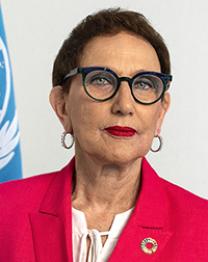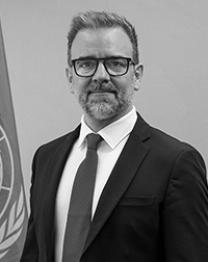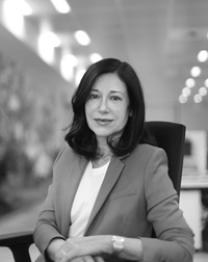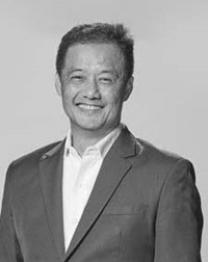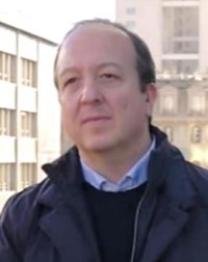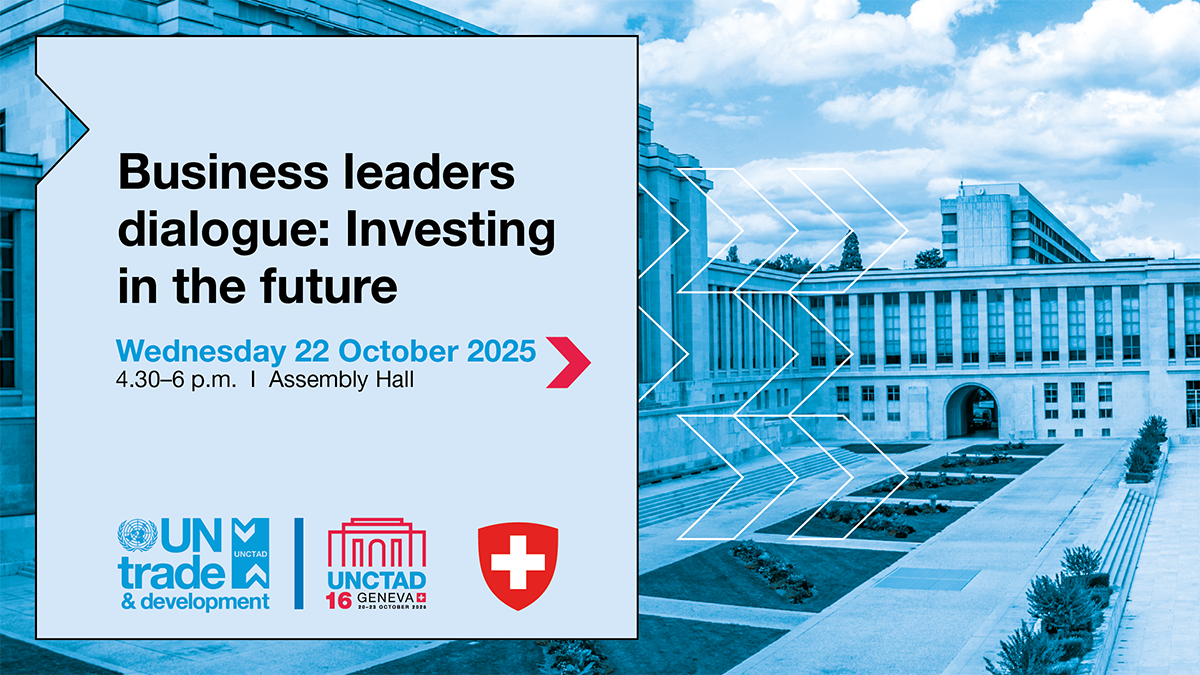
Follow live
Investment is more than simply capital flows and project pipelines; it reflects global priorities, signals confidence in emerging sectors and shapes who participates in the economy of the future. However, the current outlook is troubling.
Global foreign direct investment declined in 2024 for a second year, international project finance is down, sharply, and investment across key sectors aligned with the Sustainable Development Goals is contracting.
This high-level dialogue serves as a preparatory session convened prior to World Investment Forum 2026. It is aimed at examining how international investment, and finance, can be strategically realigned to support sustainable and inclusive development.
The discussion will bring together leaders from Governments, international organizations and the private sector, to identify the policy, regulatory and institutional frameworks needed to mobilize cross-border capital at scale.
Discussions will explore actionable solutions to redirect finance towards global public goods and long-term resilience, helping to shape the agenda of World Investment Forum 2026.
Programme
Opening remarks: Pedro Manuel Moreno, Deputy Secretary-General, UN Trade and Development (UNCTAD)
Panel 1: Shaping the agenda of World Investment Forum 2026: Key themes
Questions
- What are the most critical issues facing international investment and how can public and private investment evolve to address ongoing and future global challenges beyond the current geopolitical context?
- Which barriers deter private investors from scaling investment and innovation in developing markets and which measures would increase investor confidence?
Speakers
- Julio Moltó, Minister of Commerce and Industry, Panama
- Ángela Pérez, Chairperson and CEO, COFIDES
- Alan Chan, CEO, Full Vision Capital, Executive Director of the Board, Hong Kong and China Gas Company (Towngas), and Chairman, EcoCeres
- André Hoffmann, Interim Co-Chair, World Economic Forum, and Vice Chairman, Roche Holding AG
Panel 2: Mobilizing key investment stakeholders for collective action
Questions
- What can public and private sector leaders do to unlock the long- term and responsible private investment that drives the green and digital transitions?
- Which concrete topics and initiatives may be proposed, to be featured at World Investment Forum 2026, and what are some suggestions for how to best mobilize participation and collective actions from key stakeholders?
Speakers
- Shaikha Nasser Al Nowais, Secretary-General elect, UN Tourism (2026-2030)
- Boon Heong Ng, CEOs, Temasek Foundation
- Alfonso Líbano Daurella, Vice Chairman, Cobega, and Chair, Family Business Network
Closing remarks: Rebeca Grynspan, Secretary-General of UN Trade and Development (UNCTAD)
Moderator: Damon Embling, Director, Headline Media UK
Format: Davos-style
In September 2021, Rebeca Grynspan was appointed Secretary-General of the United Nations Conference on Trade and Development (UNCTAD), becoming the first woman to lead the organization in its 60-year history.
Rebeca Grynspan, an economist and former Vice President of Costa Rica, is an experienced leader of international institutions with a substantive track record in government, UN diplomacy, economic policy and multilateral cooperation at the global level.
Prior to joining the United Nations, she was Vice President of Costa Rica and held cabinet positions as Minister of Housing, Minister Coordinator of Economic and Social Affairs and Deputy Finance Minister.
Previously, she served as Secretary-General of the Ibero-American Conference (2014–2021), chairing regional summits of Heads of State and Government; United Nations Under-Secretary-General and Associate Administrator of the United Nations Development Programme (UNDP); and UNDP Regional Director for Latin America and the Caribbean. She was a member of the UN Commission for the Reconstruction of Haiti, representing the UN Secretary-General.
At UNCTAD, Grynspan has been at the centre of critical negotiations to address global trade and development challenges. She played a decisive role in the successful Black Sea Grain Initiative brokered between the UN, Türkiye, the Russian Federation and Ukraine, which enabled the safe export of over 32 million tons of grain, lowered global food prices by 22% and prevented millions from falling into food insecurity. She also leads the UN Global Crisis Response Group on food, energy and finance, and has represented the UN in G20 summits.
Her leadership has been recognized widely. In 2024, she received the Doha Negotiator of the Year Award for spearheading UN efforts to restore Black Sea trade routes. In 2025, Spain’s Ministry of Foreign Affairs, European Union and Cooperation awarded her the inaugural Isabel Oyarzábal Women in Multilateralism International Prize for her contribution to multilateralism.
Ms. Grynspan holds degrees in economics from the University of Costa Rica and the University of Sussex, and honorary doctorates from several European universities.
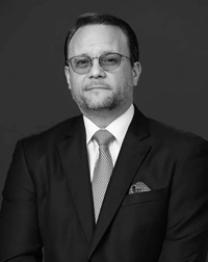
Julio Armando Moltó Alain is an engineer by profession, with extensive and varied professional experience in both the public and private sectors. In the government sphere, he has held important positions such as Director of the National Police, Executive Secretary of the Security Council and Executive Secretary of the Ministry of the Presidency.
In the private sector, he has worked in the area of social communication and logistics, holding the position of Executive Vice-President and General Manager of the GESE Publishing Group, New Media Manager at Corprensa, Manager of Mi Diario and General Manager of Solo Container Panama. This extensive experience has allowed him to develop strategic and management skills in diverse and dynamic environments.
During the 2009-2014 presidential term, he served as Director of the Panamanian National Police, demonstrating leadership and management skills in the public sphere.
Throughout his professional life, he has accumulated solid experience in public and private service, establishing himself as a recognised and respected figure in his field.
Mr. Pedro Manuel Moreno of Spain, is Deputy Secretary-General of UNCTAD.
He has over 20 years of experience of working for multilateral and intergovernmental organizations in programme, management and strategic positions both in the field and at headquarters.
He was Deputy Secretary-General of the Communication for Development Committee at the Spanish National Commission with the United Nations Educational, Scientific and Cultural Organization (1999-2004), and for the United Nations Development Programme, at the Country Office in Ecuador and, in New York City, as part of the Human Development Report team, at the Regional Bureau for Latin America and the Caribbean and at the Executive Office.
In 2014, he was appointed Chief of Staff of the Ibero-American Conference in Madrid, where he coordinated key political processes and South-South cooperation projects.
In September 2021, he was named Chief of Staff and Director of the Office of the Secretary-General of UNCTAD.
Shaikha Al Nowais is a distinguished leader in global tourism and hospitality, with an extensive background in delivering governance, sustainability, and economic development projects and initiatives across the Middle East, Africa, Eastern Europe, and Turkey. Shaikha’s service to the tourism industry extends beyond the private sector, to a number of voluntary stewardship roles where she champions inclusion, education and growth.
Her candidacy for UN Tourism Secretary-General is anchored in a vision of sustainability, digital transformation, ethical governance, and cultural advancement.
As a progressive and forward-thinking leader, Shaikha is dedicated to working with global partners to unlock the economic potential of tourism, and guide the industry toward a sustainable, innovative, and inclusive future.
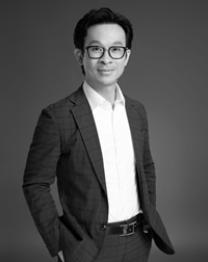
Alan Chan is a veteran business executive and visionary strategist, currently serving as the CEO of Full Vision Capital. Revered for his investment acumen and his commitment to impactful initiatives, Alan is Founding Investor in a diverse portfolio of green-economy ventures, including EcoCeres, EnerVenue, StarFive and Towngas Lifestyle.
Upholding the ethos of “Doing well by doing good”, he actively seeks and incubates innovative solutions and technologies at the forefront of the green energy sector. His relentless passion for sustainability and innovation drives transformative changes and foster progress towards a greener future.
Ángela is a senior professional with more than thirty years of experience in the design and execution of financial operations in international markets. She has extensive management experience in both the public and private sectors, leading multidisciplinary teams in diverse cultural and organizational settings.
Since July of last year, she has served as Chair and Chief Executive Officer of COFIDES, the Spanish state majority-owned financial institution that partners with the private sector to foster sustainable and impactful investments. COFIDES is well known to her, as she was Chief Investment Officer from 2000 to 2010.
Before returning to COFIDES, she spent 15 years as Head of Structured Finance and Asset Management at ELECNOR, a leading multinational company in the infrastructure and energy sectors where she led multiple debt and equity deals across different continents.
Ángela began her professional career as an investment banker at BZW in London and spent a total of ten years working within the Barclays Group.
She holds a degree in Economics and Business Administration from the Universidad Complutense de Madrid and completed the PADE Executive Program at IESE Business School, University of Navarra.
Boon Heong joined Temasek Foundation (TF) in 2020. Temasek Foundation spearheads programmes to pilot different innovative solutions and models to deliver impact for planet, people, peace and
progress in Asia, including Singapore.
Prior to TF, Boon Heong was Managing Director Sustainability and concurrently Head Community >Stewardship at Temasek. During this time, he led the pioneering efforts to set up both the sustainability and community stewardship teams at Temasek and developed strategies to deploy Temasek’s community funds in support of Temasek’s role as a Trusted Steward to connect people, uplift communities, protect planet and advance capabilities in Singapore and beyond. He also served a short stint as deputy CEO of Temasek Trust in 2022.
In his early years, Boon Heong also served in the Singapore Armed Forces and was intimately involved in technology development to build advanced warfighting capabilities in advanced sensors, autonomous vehicles and sense making. He has also worked with different stakeholders to deliver integrated and multi-source information fusion and analysis products, scenario development and contingency planning including providing support to various SAF Humanitarian Assistance and Disaster Relief operations.
Boon Heong graduated with a Bachelor of Electrical and Electronic Engineering Honours from the Nanyang Technological University Singapore, holds a Masters in Business Administration from Singapore Management University and Masters in Systems Integration (Information Systems) from Naval Postgraduate School USA. He was the top Army graduate of the SAF Command and Staff College, graduated from the Indonesian Military's Joint Command and Staff College (SESKO TNI) and was awarded Public Administration Medal (Silver).
André Hoffmann is a businessman and firmly believes in business as a force for good. He is a passionate advocate for the corporate pursuit of societal purpose and sustainability.
André is Vice Chairman of Roche Holding AG, a highly innovative pharmaceutical company established by his great-grandfather in 1896. He also serves on the board of the fully-owned subsidiary, Genentech Inc.
Alongside these non-executive roles in the family business, André is co-chair of the World Economic Forum; he also joined the Board of SystemIQ to help drive positive disruption in economic systems. He is President of W.A. de Vigier Stiftung and Vicechairman of the board of the Venture Foundation.
Together with his wife Rosalie, André is co-chair of InTent, a platform which aim to accelerate sustainable solutions by building bridges and connecting people.
André also has a distinguished career in nature conservation and sustainability. He is the President of Fondation Tour du Valat, a world-renowned institute dedicated to wetland conservation, he is the Chairman of Capitals Coalition, and serves on the boards of B-Team , Peace Parcs and the Givaudan Foundation.
André’s also helped establish the Hoffmann Institute at INSEAD, and chairs its Advisory Board, and the Hoffmann Center for Sustainability at the Graduate Institute in Geneva.
André studied economics at St. Gallen University and holds an MBA from INSEAD.
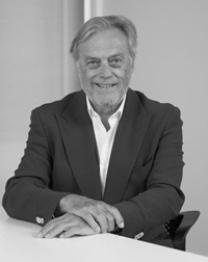
A BBC-trained journalist and broadcaster, Damon Embling has 25 years of professional media and communications experience.
He has worked as a TV correspondent and presenter, video journalist, radio reporter and digital content producer in the UK and globally for a range of media outlets, including BBC News, BBC World News, Euronews and The Associated Press Television News (APTN), among others.
Mr. Embling currently divides his time between producing TV programmes and leading Headline Media UK, a company specialising in spokesperson media training, communications consultancy and video production.
He also moderates debates and discussions, both online and at international conferences/events.



